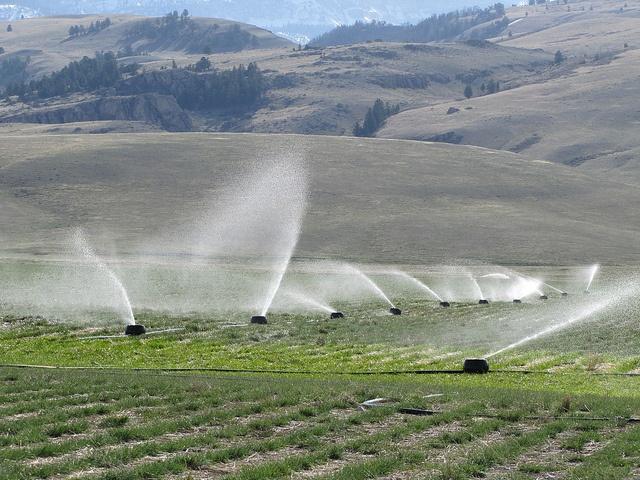
Last week, seven global food and beverage companies made commitments to work with thousands of farmers in their global supply chains to reduce water use and pollution impacts.
The firms in question are Diageo, General Mills, Hain Celestial, Hormel Foods, Kellogg, PepsiCo and WhiteWave Foods, and they are participating in the AgWater Challenge: a collaborative initiative organized by Ceres and the World Wildlife Fund (WWF).
The companies submitted detailed sustainable sourcing and water stewardship plans. A progress report on their commitments will be published in a year.
Such a collaboration is vital because a third of the world’s food is grown in areas of high water stress or competition. Agriculture also consumes a massive amount of water and is a leading cause of global water pollution. The food sector uses 70 percent of global freshwater supplies, mainly to grow crops.
“Without an adequate supply of water, food companies have no business,” Eliza Roberts, manager of the Water Program at Ceres, told TriplePundit. Three factors are “depleting freshwater resources around the world,” she told us: climate change, population growth and water pollution. “Global food companies are already facing materials risks, including disruption of operation, higher operating costs, and constraints to growth.”
Every business needs water to operate. However, consumers generally don’t realize just how much water is needed to produce the food they eat. “When consumers think about the role of water in business, they think about the water that a company uses within its own four walls or as a direct ingredient in a beverage,” Roberts pointed out. “But the reality is that the bulk of water in the food sector is used to grow the food that we eat.”
The AgWater Challenge includes five categories: setting time-bound goal for completing a water risk assessment across the companies' supply chains; setting sustainable sourcing goals; setting time-bound goals to reduce the water impacts of key crops; support farmers to steward water resources; and collaboration at the watershed level to protect resources in high-risk areas. All companies committed to completing a water risk assessment by 2017.
Three of the seven companies -- Diageo, General Mills and Kellogg -- were recognized as AgWater Stewards for their actions across all five categories. These three firms already have water stewardship commitments on the books. Diageo defines its approach to water stewardship through the Diageo Water Blueprint. It is based on four core areas: raw materials sourcing, operations, the communities where it operates, and local and global advocacy for best practices in water stewardship. Diago also committed to establish partnerships with farmers to develop sustainable agricultural supplies of six raw materials by 2020. By the same year, the company will ensure sustainable water stewardship on 100 percent of owned agricultural land.
General Mills committed to champion the development of water stewardship plans by 2025 for the most material and at-risk watersheds in its global value chain. The global food company committed to sustainably source its top 10 ingredients (palm oil, fiber packaging, wheat, oats, sugar beets, vanilla, cocoa, dairy, corn and sugarcane) by 2020.
Kellogg Co. committed to responsibly source by 2020 its global 10 priority ingredients by measuring continuously improvement for row crops through metrics focused on several factors, including water and fertilizer use. It also committed to support 17,000 agricultural suppliers, millers and farmers in 22 countries to optimize water use and improve watershed quality.
New commitments by the other four companies include:
- The Hain Celestial Group will complete a water risk assessment across its entire supply chain by the end of 2017. The company will use this assessment to implement a watershed-by-watershed strategy to reduce water use and pollution risks linked to agricultural production.
- Hormel Foods will develop a sustainable agriculture policy over the next three months, requiring all direct suppliers, contract animal and feed grain farmers to meet best environmental practices for reducing water pollution risks.
- PepsiCo plans to improve the water-use efficiency of its direct agricultural supply chain (citrus, corn, oats and potatoes) by 15 percent in high water risk sourcing areas.
- WhiteWave Foods will develop a time-bound roadmap for agricultural water stewardship by 2018. The roadmap will address the watershed challenges of dairy, soy, almond and produce in areas of greatest water risk, including California.
Image credit: Flickr/USFWS Mountain Prairie

Gina-Marie is a freelance writer and journalist armed with a degree in journalism, and a passion for social justice, including the environment and sustainability. She writes for various websites, and has made the 75+ Environmentalists to Follow list by Mashable.com.














